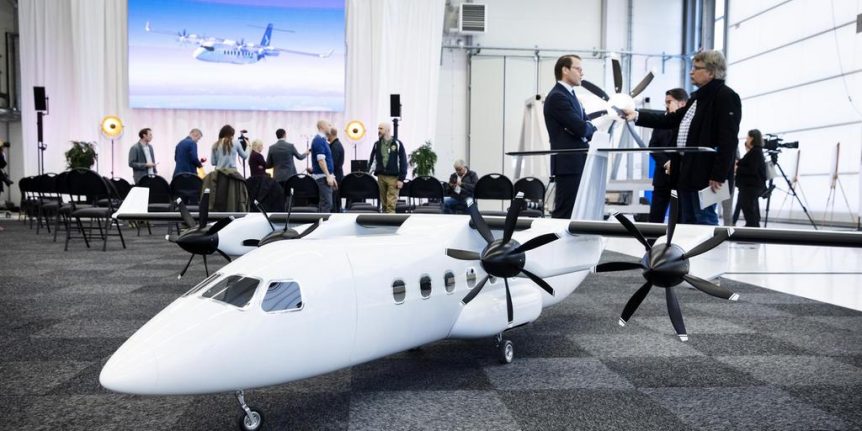Heart Aerospace, a Swedish startup, has teamed with BAE Systems, a veteran British aerospace supplier, to help with powering its 30-seat, battery-powered airliner. The four-motor craft will include a very large battery pack under the passenger compartment. The need for safety should be obvious. Adding eleven seats to its original 19-seat platform, Heart also brings a turbo generator on board, enabling flights up to 400 kilometers (250 miles) with 30 passengers, or even 800 kilometers (500 miles) with 25. These figures include normal airline range reserves. Partners include BAE Systems, Swedish aerospace group Saab, avionics supplier Garmin, and Aernnova, a Spanish airframe specialist. BAE’s UK-based group’s Controls and Avionics Solutions operation in upstate New York will oversee the batteries and their control and monitoring. This fits BAE’s expertise, with more than 25 years of experience electrifying large, heavy-duty industrial vehicles with over 15,000 power and propulsion systems in service worldwide. This will be critical considering the placement of the batteries. …
Take Heart! United We Fly!
Heart Aerospace, on the airport at Gothenburg Airport in southern Sweden, wants to bring inexpensive, four-motor electric flight to the masses. With $35 million (29.4 million euros) in recently acquired backing, the small team at Heart is working toward making a 19-passenger, four-motor airliner a reality. Their ES-19 is a single-aisle design with eight-rows of single seats and three-seat row at the cabin’s rear. Those 19 seats are a selling point, with United Airlines signing purchase contracts for 100 of the $ 9 million machines. Mesa Airlines follows suit for another 100 and Finnair, Finland’s national airline, has expressed interest in another 20. Funding from Bill Gates’ Breakthrough Energy Ventures and other investors totals over $35 million. For a niche market, the possibilities are expansive, with many small airlines flying short routes ready for such a craft. Heart sees the 19-seat market as promising, since few 19-seat commuter liners exist anymore. Part of that is economic, with small turboprops being …
Measuring Up To Standards
ASTM International, formerly known as the American Society for Testing and Materials, develops “international consensus standards” for many industries, using input from its members in many fields and disciplines. Their D-7566-11 “Standard Specification for Aviation Turbine Fuel Containing Synthesized Hydrocarbons” governs what can be put into jet and turbo-prop aircraft. Updated in July 2011, it now allows the use of biologically-derived fuel “without the need for special permissions,” according to SAE International, itself a standards organization, and as reported by Patrick Ponticel. United Airlines was quick to take advantage of the revised standard, using “Solazyme-supplied algae oil that was refined into jet fuel by Honeywell’s UOP division near Houston. The blend used for the November 7, Boeing 737-800 flight was 40-percent Solazyme’s Solajet and 60-percent petroleum-derived commercial jet fuel (Jet-A).” SAE explains that, “Under the ASTM standard, up to 50-percent bio-derived synthetic blending components can be added to conventional jet fuel. These renewable fuel components, called hydroprocessed esters and fatty acids …


